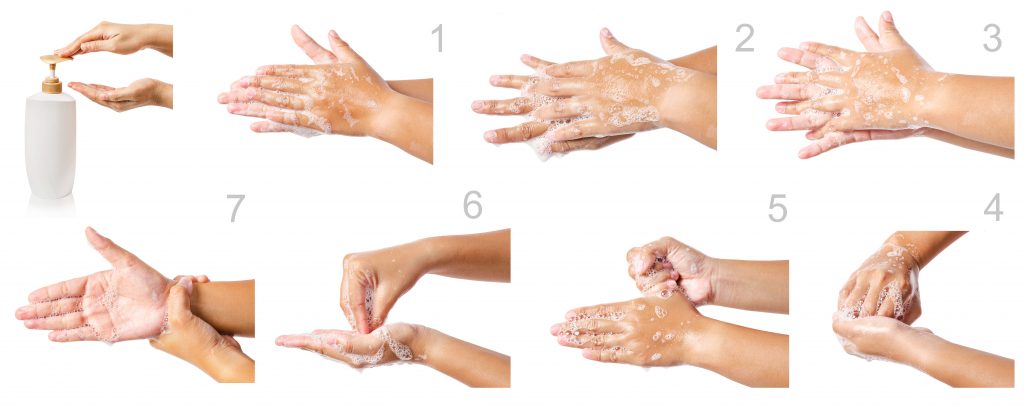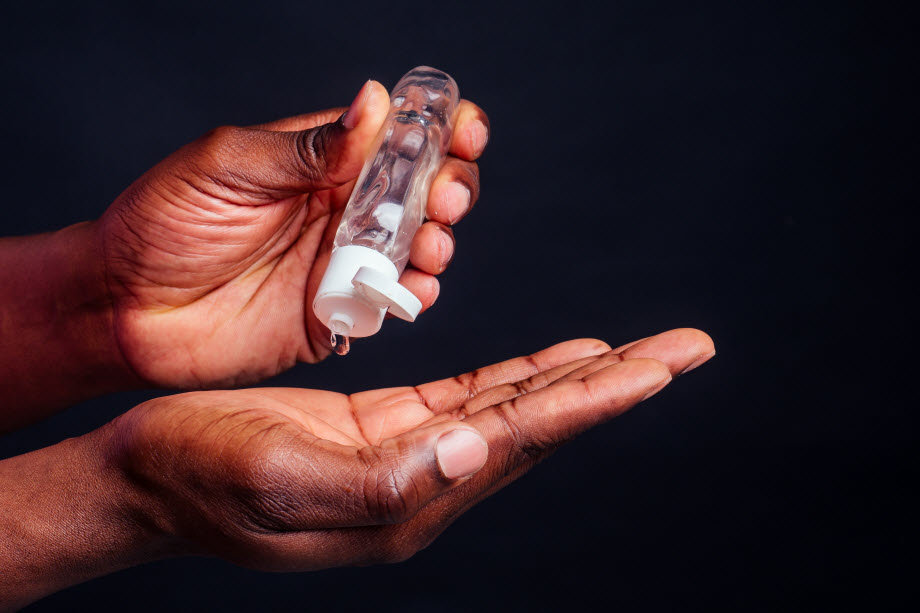The first week of December is National Handwashing Week, and rightfully so. As the weather gets colder, and as people are coming in closer and more frequent contact due to the holidays, making sure your hands are clean is key to keeping illness at bay. In fact, 80% of communicable diseases can be transferred by touch, which can be a doozy if you’re playing games with your niece who picked up something nasty at preschool.
So, without further ado, let’s talk about when (and HOW) to wash your hands!
When to Wash Your Hands
According to the CDC, there are a number of times you should wash your hands (other than the obvious post-bathroom visit). They include:
- Before, during, and after preparing food
- Before eating food
- Before and after caring for someone at home who is sick with vomiting or diarrhea
- Before and after treating a cut or wound
- After using the toilet
- After changing diapers or cleaning up a child who has used the toilet
- After blowing your nose, coughing, or sneezing
- After touching an animal, animal feed, or animal waste
- After handling pet food or pet treats
- After touching garbage
All these actions are likely to spread bacteria and germs, so stopping the spread before it starts is key.
How to Wash Your Hands
I remember a few years back when a friend of mine who worked in medical staffing saw me wash my hands. He was appalled… apparently, I was doing it all wrong! Much like we’ve learned other habits, like how to sneeze politely, brush our teeth, or wash our hair, many times the person who taught us the grooming technique did so incorrectly. When it comes to washing our hands, most of us are washing them far too quickly.
According to my friend, “you should wash your hands to the length of “Happy Birthday.” It seems like he was on the right track, (or I misremembered him), but according to the CDC, you should be washing your hands for at least 20 seconds, or the time it takes to sing “Happy Birthday” … TWICE!

Their 5-Step Method:
- Wet your hands with clean, running water (warm or cold), turn off the tap, and apply soap.
- Lather your hands by rubbing them together with the soap. Lather the backs of your hands, between your fingers, and under your nails.
- Scrub your hands for at least 20 seconds. Need a timer? Hum the “Happy Birthday” song from beginning to end twice.
- Rinse your hands well under clean, running water.
- Dry your hands using a clean towel or air dry them
And yes, there is science behind these recommendations. Under your nails and between your fingers are great places for hard to reach bacteria to camp out, and germs love the back of our hands just as much as the front. Scrubbing hands dislodges stubborn dirt, and rinsing hands removes them once and for all. Germs also love wet places, so keeping hands dry after washing is the best way to prevent the spread.

And what about hand sanitizer?
While washing hands with soap and water is the best defense against the spread of germs, hand sanitizer is a good substitute if (and only if) you can’t wash your hands. While sanitizers can quickly reduce germs, there are a number of reasons not to use hand sanitizer as a substitute for plain old soap and water:
- Sanitizers do not get rid of all types of germs.
- Hand sanitizers may not be as effective when hands are visibly dirty or greasy.
- Hand sanitizers might not remove harmful chemicals from hands like pesticides and heavy metals.

If you do have to use sanitizer, make sure it’s at least 60% alcohol, and try the following steps recommended by the CDC:
- Apply the gel product to the palm of one hand (read the label to learn the correct amount).
- Rub your hands together.
- Rub the gel over all the surfaces of your hands and fingers until your hands are dry. This should take around 20 seconds (or another two “Happy Birthdays” 😊).
This National Handwashing Week, we invite you to take a little more time for your hands. Pamper them. Lather them lovingly with soap, rinse them gently in some water, heck, even sing them a “Happy Birthday” tune. And remember to keep your hands clean, to ensure that the spread of germs this holiday season stops with you.
 Food
Food Farmers
Farmers Sustainable Living
Sustainable Living Living Planet
Living Planet News
News